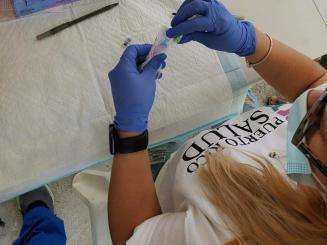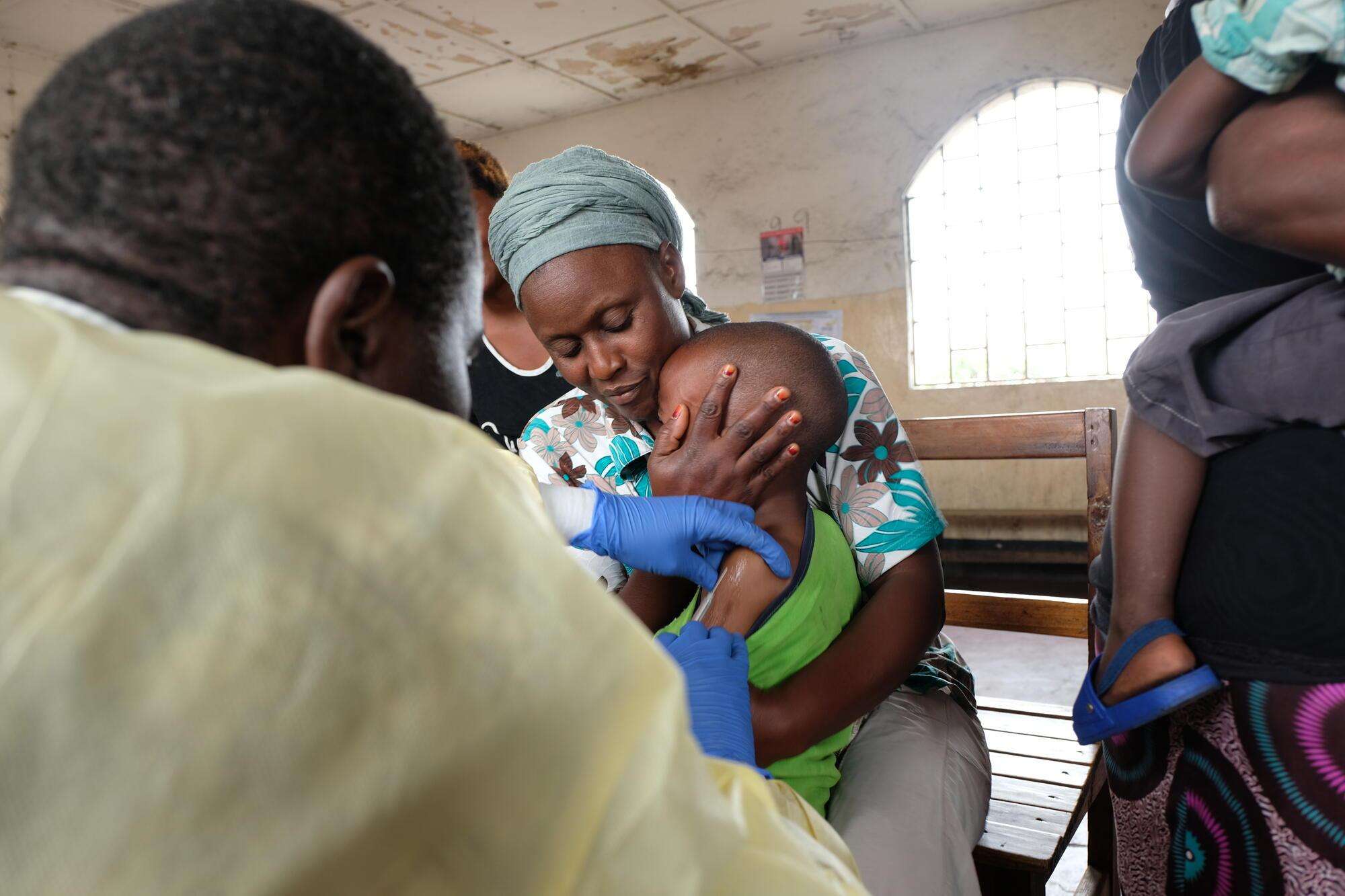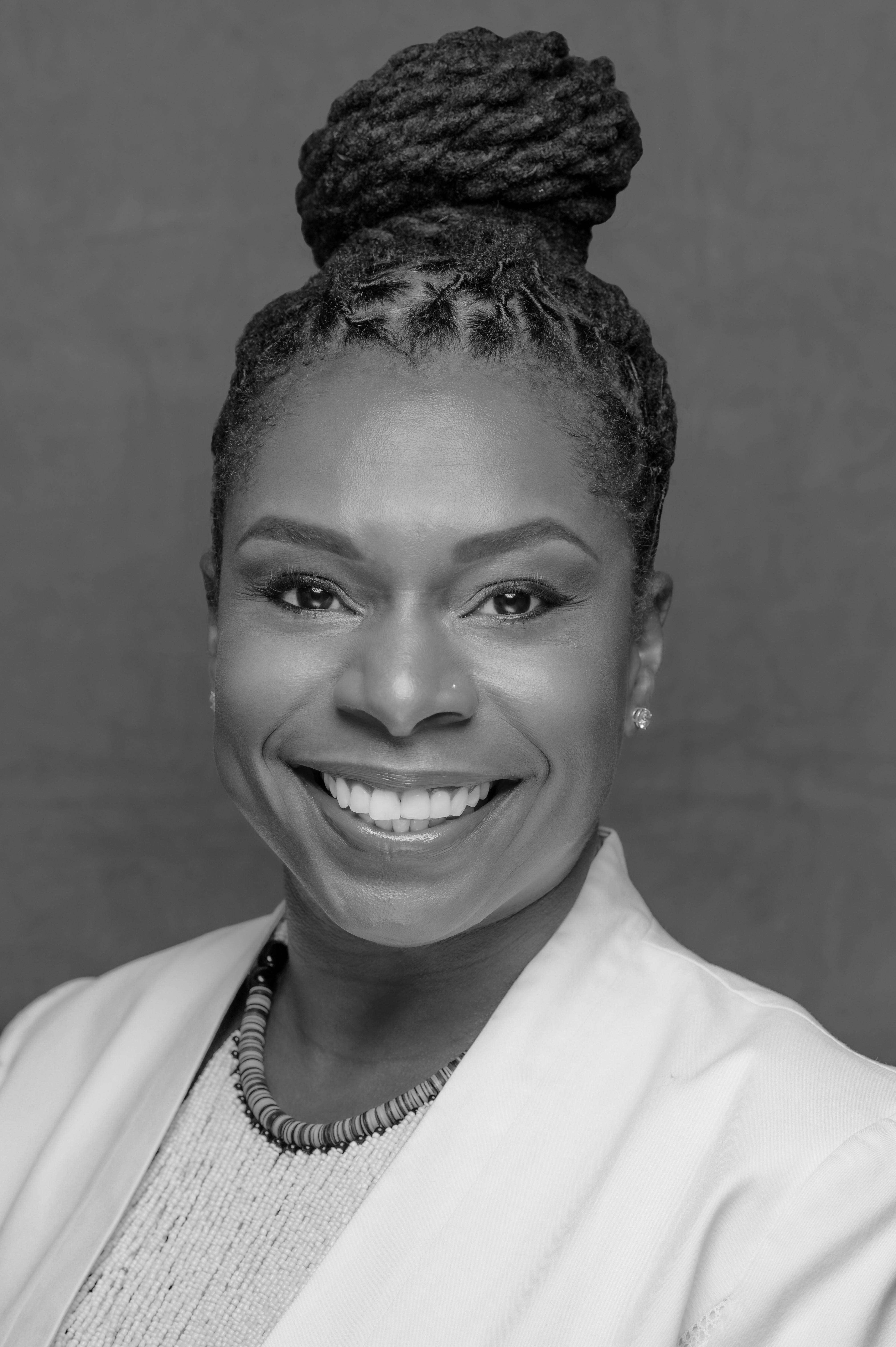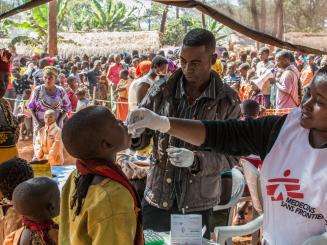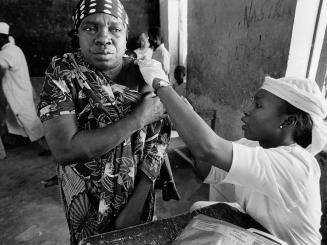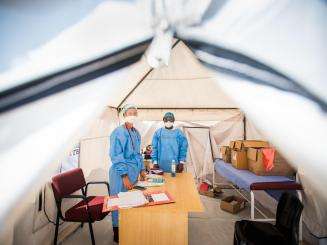Alert is a quarterly magazine published by Doctors Without Borders/Médecins Sans Frontières (MSF-USA) that features compelling stories and photography from our work around the world. Below is an excerpt from MSF-USA Board President Africa Stewart's introduction to the Spring 2021 issue (Vol 22. No. 1.), Vaccines work: Preventing the spread of deadly disease.
A Letter from Dr. Africa Stewart
Dear Friends,
As a child, I never had a pediatrician. My health care was a patchwork of free clinics and emergency room visits. The mobile clinics that traveled through the poor neighborhoods in and around Pittsburgh often landed at our local fire station. The place where our parents held social gatherings on Friday nights was transformed on Saturday mornings to accommodate those in need. Our community leaders organized well-child checkups, scoliosis screenings, sports physicals, vaccinations, and everything in between.
My parents lived through the polio era in the very city where the first injectable polio vaccine was developed in the 1950s. Families who had witnessed the polio epidemic firsthand were grateful and relieved to have this new vaccine. The work of Dr. Jonas Salk at the University of Pittsburgh is now part of the annals of history and intertwined with modern-day virology. My hometown drafted some of the key blueprints of public health and science.
Today, we should remember the good doctor’s reply when a journalist asked him who owns the polio vaccine. “The people,” Dr. Salk responded. “There is no patent. Could you patent the sun?”
Back when I was growing up, many parents purposely exposed their young children to chickenpox in an effort to exert some control over the timing and severity of what was considered an inevitable disease. Now the varicella vaccine is part of the routine immunization schedule across the US.
As a clinician, I began my internship in 2000, just as debates were swirling around the use of the traditional Papanicolau test—better known as the Pap smear—to look out for cervical cancer. At the time, it was the only method but there was growing evidence around the role of the human papillomavirus (HPV) in precancerous changes to the cervix. As young physicians, we were vocal and adamant about the need to incorporate the new HPV testing in our clinical practices to reflect a more modern and patient-centered model of care. Now we know that cervical cancer is preventable with the HPV vaccine, part of a child’s standard vaccine schedule in the US. Yet in many of the places where MSF works, HPV vaccinations remain out of reach and cervical cancer still claims too many lives.
With the world’s focus today on the availability and usefulness of COVID-19 vaccines, I am reminded of those early mornings in a Pittsburgh firehall. The fear, the uncertainty, and the myriad practical logistics are still very much on my mind as MSF teams around the world try to reach poor and vulnerable communities to deliver medical care. My experience with free clinics here in the US very much informs my commitment to underserved populations in other countries, and to the 45,000 staff members working hard in all of our medical projects.
I am thinking about the incredible impact of vaccines in my lifetime, and marveling at the breadth of MSF’s work to expand access to these lifesaving tools. Right now, we are working hard to secure fair and equitable access to COVID-19 vaccines everywhere they are needed, including supporting vaccination efforts in Puerto Rico and New York City. At the same time, we've been conducting vaccination campaigns in response to other outbreaks overshadowed by the pandemic. We’re also hustling to maintain routine vaccinations under extraordinary circumstances.
I hope this issue of Alert helps you understand more about how vaccines work, and how MSF works. As we prepare to mark the 50th anniversary of our founding in December 1971, we find ourselves looking back to reflect on lessons learned and looking ahead to anticipate future challenges. We’d love to hear from you. If you have a question or a story idea you’d like to see covered, drop us a line at alert@newyork.msf.org.
Thank you for your support as we continue this vital work.
Sincerely,
Dr. Africa Stewart
May 21 12:51 AM
How to pull off a mass vaccination campaign
Protecting as many people as possible under the most challenging circumstances
Read More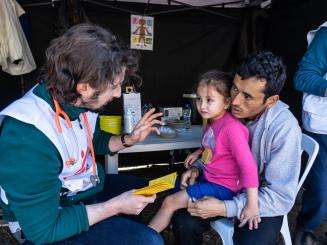
May 21 01:09 AM
Puerto Rico: Getting COVID-19 vaccines where they’re needed
Working with partners to reach vulnerable communities
Read More